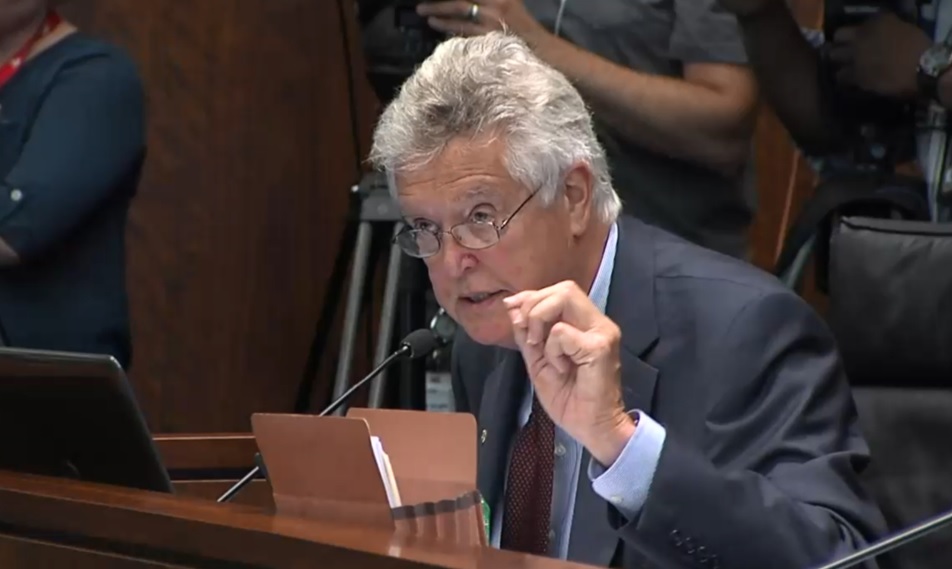At a recent joint meeting of the House and Senate K-12 Education Committees, a former Walter Payton College Preparatory student testified that the Chicago Public Schools’ (CPS) teacher who sexually abused her at school when she was 14 is now collecting a taxpayer-funded pension. Outraged by her testimony, State Representative Steve Reick (R-Woodstock) has filed legislation that would strip teachers who molest school children of their public pensions.
“I was shocked to learn that there was no provision in Illinois law to take these child predators’ pensions away,” said Reick. “School is a place where students should feel safe, and we’ve learned of numerous instances where the teachers charged with protecting kids have actually been sexually abusing them. And this is not just limited to CPS. There are cases right here in McHenry and Kane Counties alleging sexual misconduct by teachers toward students. It’s sickening.”
HB 5929, filed July 9 in Springfield, would amend the Chicago and Downstate Articles of the Pension Code to allow the forfeiture of pension benefits of any teacher who is found through an administrative hearing to have sexually abused a student. “This legislation puts Illinois teachers on notice that when they sign up for a public pension, they do so knowing that the benefit will be taken away if they violate a child,” Reick said. “It’s a real shame that we even need to legislate this. In the case of former Walter Payton College Prep student Morgan Aranda, it’s as though her abuser was rewarded for his despicable acts.”
While Reick said he would have preferred to write legislation that would retroactively remove pensions from child abusers, the pension guarantee written into the Illinois Constitution prohibits it. His bill would apply to any teacher hired after the effective date of the bill. Reick expects wide, bipartisan support of his legislation and hopes it will be heard during the legislature’s upcoming fall veto session. If passed and signed into law, the provisions of HB 5929 would take effect immediately.
